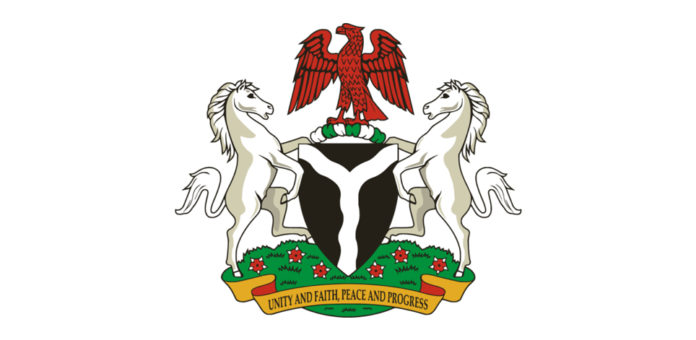…………….…Fagbemi Inaugurates Ministerial Committee.
The Honourable Attorney General of the Federation and Minister of Justice (HAGF) Lateef Fagbemi SAN, earlier today inaugurated the National Anti-Corruption Strategy (NACS) 2022 – 2026 Ministerial Committee made up of high-level persons saddled with the onerous responsibility to drive measures to significantly reduce incident of corruption in all its ramifications in the country.
The HAGF revealed that NACS Ministerial Committee was set up to curb the menace of corruption which he stated was one of the formidable challenges to the attainment of National Development Goals because it undermined trust in public and private institutions, distorted resource allocation and incapacitated the ability to provide effective and efficient service delivery.
In his welcome address, Fagbemi maintained that NACS was in tandem with the anti-corruption stance of the Administration of President Bola Ahmed Tinubu GCFR, which aimed at eradicating corruption, while strengthening the effectiveness and efficiency of various Anti-Corruption Agencies. In line with the administration’s agenda, the NACS Ministerial Committee was selected with the following members: Attorney General of the Federation and Minister of Justice – Chairman, Hon. Minister of Finance – Member, Hon. Minister of Interior – Member, Hon. Minister of Foreign Affairs – Member, Hon. Minister of information and National Orientation – Member and Minister of Women Affairs – Member.
Others were Minister of Communications, Innovation and Digital Economy – Member, Head of the Civil Service of the Federation – Member, Chairman, Senate committee on Anti-Corruption and Financial Crimes – Member, Chairman, House committee on Anti-corruption and financial crimes – Member and Representative of Secretary to the Government of the Federation, not below the rank of Permanent Secretary – Member.
According to Fagbemi, “the high-level NACS Ministerial Committee was set up in line with the government’s determination to galvanize stakeholders to tackle corruption, through operationalization of the NACS 2022 – 2026. This is also part of efforts to ensure implementation of Nigeria’s international obligations, particularly the ECOWAS Protocol on the fight against Corruption which Nigeria signed in 2001, the African Union Convention on Preventing and Combating Corruption (AUCPCC) signed in 2003, and the United Nations Convention against Corruption (UNCAC) signed in October, 2003. These international instruments are aimed at tackling the growing incidence of corruption globally, and Nigeria has taken steps to implement recommendations contained therein”.
The HAGF highlighted that, “in an effort to develop a homegrown Anti-corruption strategy, the Inter-Agency Task Team (IATT) at its retreat in 2009 signed a statement of commitment to develop a National Anti-Corruption Strategy (NACS) that will identify the root causes of corruption and effectively combat corruption. Sequel to this commitment by the Federal Government, the Federal Executive Council at its 25th meeting in July, 2017 approved the adoption of the NACS and directed the then Attorney General of the Federation and Minister of Justice to come up with a robust implementation plan for the NACS 2017-2021. The NACS Action Plan was developed, validated and adopted by relevant stakeholders on the 26th March, 2018”.
He further revealed that, “at the expiration of the NACS 2017-2021, in November, 2022, FEC considered and approved the extension of its implementation for another period of four (4) Years i.e NACS 2022 – 2026. Further this approval, stakeholders including the NACS Secretariat under my office, the Inter-Agency Task Team, as well as relevant MDAs, Law Enforcement and Regulatory Agencies, with the support of our Donor Partners such as International IDEA, carried out series of consultations and engagements on the review of the NACS and its Action Plan. I am glad to inform you that NACS Action Plan 2022 – 2026 was validated by critical stakeholders on 26th July, 2024”.
The HAGF further revealed that the Framework for the NACS and its Action Plan implementation was focused on five (5) pillars which serve as the driving force for both the public and private sector, with Its scope covering National and sub-national levels of government: Prevention of corruption; public engagement; campaign for ethical re-orientation; enforcement and sanction; and recovery and Management of Proceeds of crime. He also revealed that the implementation of the NACS and its Action Plan were expected to be carried out under the following headings: Strengthening the legal and institutional Framework designed to prevent and combat corruption; Mainstreaming Anti-corruption Principles into Governance and Service delivery; and Mainstreaming Anti- corruption into sub-national Public Administration.
Fagbemi reiterated that the role of the Committee was of immense importance and essential to the achievement of the NACS vision and mission and that the committee would adopt the top to bottom approach, allowing the Heads of relevant Agencies to be drivers of the policy within their sectors and to also allow for cross-evaluation of implementation. He reminded them that they were responsible for facilitating the Anti-corruption Funding Framework (AFF) and the development of sector-specific strategies for the implementation of NACS as well as driving critical understanding and implementation of NACS within their sectors.
Signed
Aderemi Ajibola ADELABU
ACI&PRO
For: Director (Information and Public Relations)






